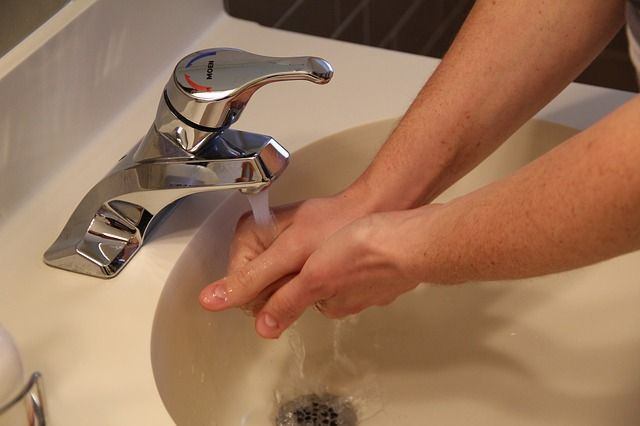Why Wash Your Hands? Fecal Matter Bacteria Are The Most Common Type Found On Your Fingers

Every day, we expose our hands to millions of germs at school, work, and even at home. Although antibacterial gels, wipes, and foams have special chemicals to kill bacteria, our hands are still overwhelmingly dirty. So, just how many germs are on our hands, and what's the best way to get rid of them?
In the first episode of Trust Me I'm A Doctor: "How Dirty Are Your Hands?" Dr. Chris van Tullekan, an infectious disease specialist, investigates just how dirty our hands are, and if antibacterial products are the best way to keep them clean.
Van Tullekan and his colleagues swabbed the hands of 50 people out on the streets of London to determine the average number of bacteria the average person hosts on their hands. With the help of Dr. Ron Cutler, a microbiologist at the Queen Mary University of London, van Tullekan found everyone had bacteria on their hands, and fecal matter was present in 26 to 30 percent of people. Meanwhile, over one-fourth of the hands were “heavily contaminated” with bacteria, carrying at least three times more than the average. A whopping 10 percent of hands were “grossly contaminated,” carrying 10 to 50 times more than the average person.
Fecal bacteria doesn't just come from the bathroom; the kitchen sink harbors 1,000 times more germs than a toilet, while most chopping boards have fecal matter on them. Famous stomachs bugs like E. coli lurk in washing machine water.
So, the best way to clean our hands of bacteria is not so much what we use, but the way we use it. The physical action of washing our hands by rubbing them together is the best way to get rid of them. Soap and water can outperform expensive antibacterial products as long as adequate time is spent washing your hands.
In September, the FDA declared antibacterial soaps can no longer be sold if they contain any one of 19 forbidden ingredients, including triclosan (used in liquid soaps) and triclocarban (used in bar soaps). Manufacturers who use these products have not demonstrated the ingredients are both safe for long-term daily use and more effective than plain soap and water in preventing illness, and spreading certain infections.
Van Tullekan's rule of thumb to hand washing: Spend as long as it takes to sing the whole song “Happy Birthday” through twice, and to make sure to rub in between fingers, where bacteria and dirt can hide.
After all, hospital-related infections kill 16 million patients. So wash your hands and save a life.



























